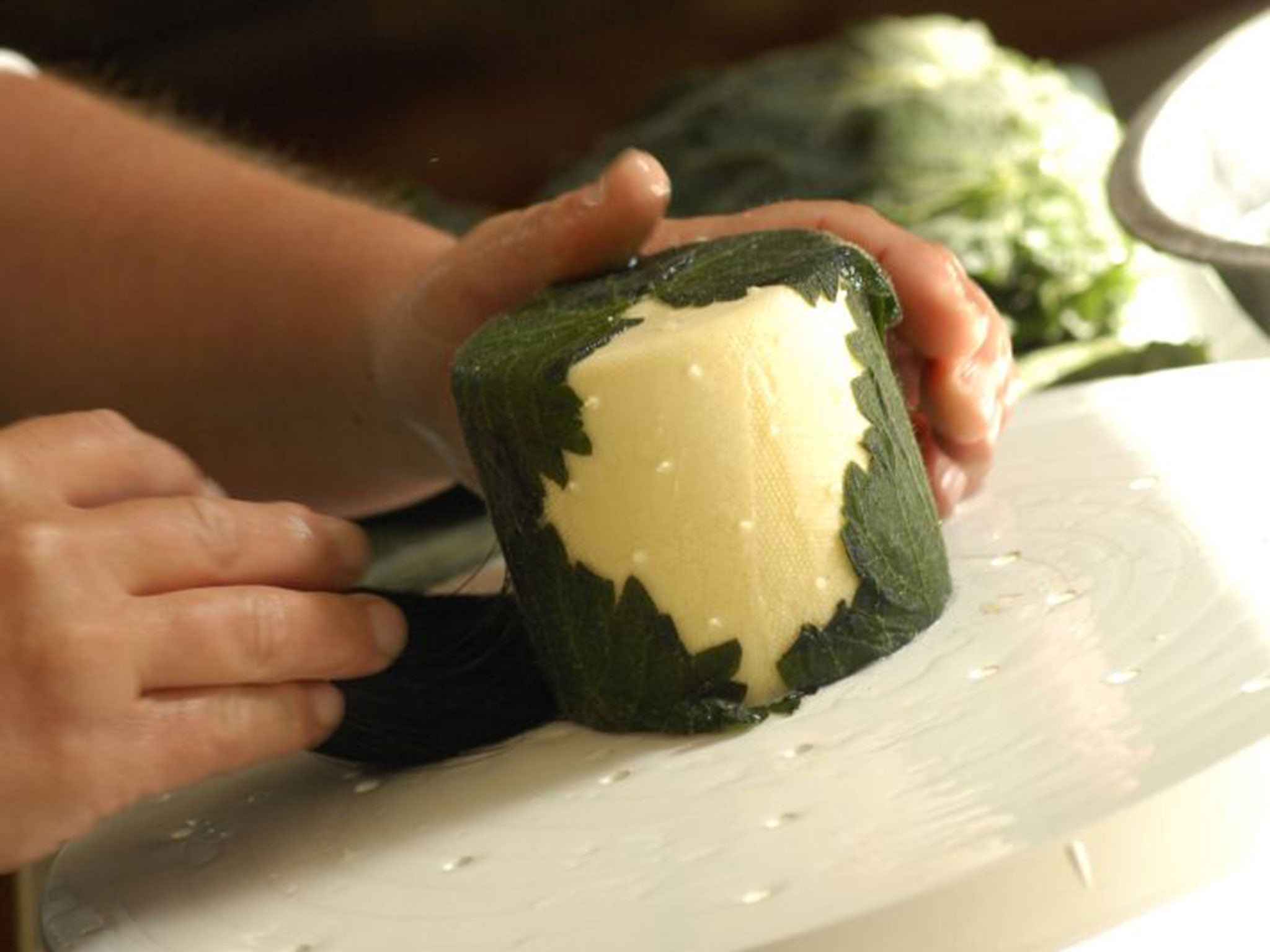Yarg: The Cornish cheese that's conquered America
It dates back to the 13th century and comes wrapped in stinging nettles. Anna Hart discovers its long and rinding road to success

Your support helps us to tell the story
From reproductive rights to climate change to Big Tech, The Independent is on the ground when the story is developing. Whether it's investigating the financials of Elon Musk's pro-Trump PAC or producing our latest documentary, 'The A Word', which shines a light on the American women fighting for reproductive rights, we know how important it is to parse out the facts from the messaging.
At such a critical moment in US history, we need reporters on the ground. Your donation allows us to keep sending journalists to speak to both sides of the story.
The Independent is trusted by Americans across the entire political spectrum. And unlike many other quality news outlets, we choose not to lock Americans out of our reporting and analysis with paywalls. We believe quality journalism should be available to everyone, paid for by those who can afford it.
Your support makes all the difference.It took 10 hours for the nettle-wrapped, creamy Cornish cheese wheel to win over the two FDA inspectors – but it succeeded, and now Yarg, a semi-hard cow's milk cheese made from a recipe thought to date back to the 13th century, is finally being sold in the US.
"The process was fairly gruelling," says Catherine Mead, a cheesemaker at Lynher Dairies. "Being audited by US inspectors was very different to audits within the European dairy industry. For a start, the US inspectors had never seen stinging nettles before, so we had to explain what they were, then explain that we paint them on to the cheese after sterilising them with lemon juice." At one point, the two FDA officials brought out a manual on pasteurisation numbering 1,700 pages. "We all thought, 'Wow, that is a lot of procedure on pasteurisation'," says Mead.
And finally, they tasted it. "I think they liked it, but taste wasn't part of their job description," says Mead. The FDA was visiting Lynher Dairies at Pengreep Farm to determine if Yarg – which was to be exported into the US by Neal's Yard Dairy – complied perfectly with US food production standards, following President Obama's FDA Food Safety Modernisation Act.
The FDA is notoriously stringent, and last month caused widespread outcry among artisan cheesemakers by floating the possibility of a ban on the use of wooden shelves for cheesemaking (it has since backed down on this policy). The US also has strict quotas for cheese imports, creating "an unnatural limit on British cheese sales in the US," as Nigel White, the secretary of the British Cheese Board puts it. "But demand is there, and tastebuds are changing, particularly in urban areas on the East and West coasts, where specialist food retailers like Whole Foods have been key in bringing so-called 'farmstead cheeses' to the attention of consumers."
And they clearly have a taste for Yarg. Carol Naden, who runs the popular CheeseTart blog, says, "Taste-wise, Yarg is often described as a cross between a Caerphilly and a good Cheddar – creamy but light. The nettles add a mild herby flavour, but the Yarg covered in wild garlic leaves makes the cheese more moist and whacks in a good fresh garlic taste."
Americans have long been maligned for being a nation whose taste for cheese doesn't stretch beyond a bright yellow Kraft slice. Many commentators argue that the country doesn't have a cheesemaking industry, but rather a cheese-manufacturing industry. According to White, this generalisation is increasingly invalid. "Over the past five years, Americans have seen a mini cheese revolution, and now consumers really do appreciate artisan or farmstead cheeses; specialist cheeses with a very different texture to what had previously sold well," says White. "And an important factor is that they've got the money to buy quality cheeses. Here, at Neal's Yard, we'll see cheese sold for an affordable £45 per kilo. In the US, in specialist deli shops, you'll find locally made cheeses and imported artisan produce going for around $50 a pound."
The original makers of Yarg could hardly have dreamed that one day their creamy, herby cheese would conquer America and find its way on to the cheeseboards of trendy NYC restaurants and posh delis in LA. Cornish Yarg was first made commercially on Bodmin Moor in the early 1980s by two artisan cheesemakers, Alan and Jenny Gray. As authentically Cornish as the name sounds, it is simply the surname "Gray" backwards. "The story goes that Alan found the recipe in a dusty old book in the attic, and we've since worked from a recipe in a 1615 volume by Gervase Markham," says Mead.
The so-called Yarg recipe has changed little over the centuries. What has changed is our tastebuds, and now American consumers appear to be following suit.
Join our commenting forum
Join thought-provoking conversations, follow other Independent readers and see their replies
Comments